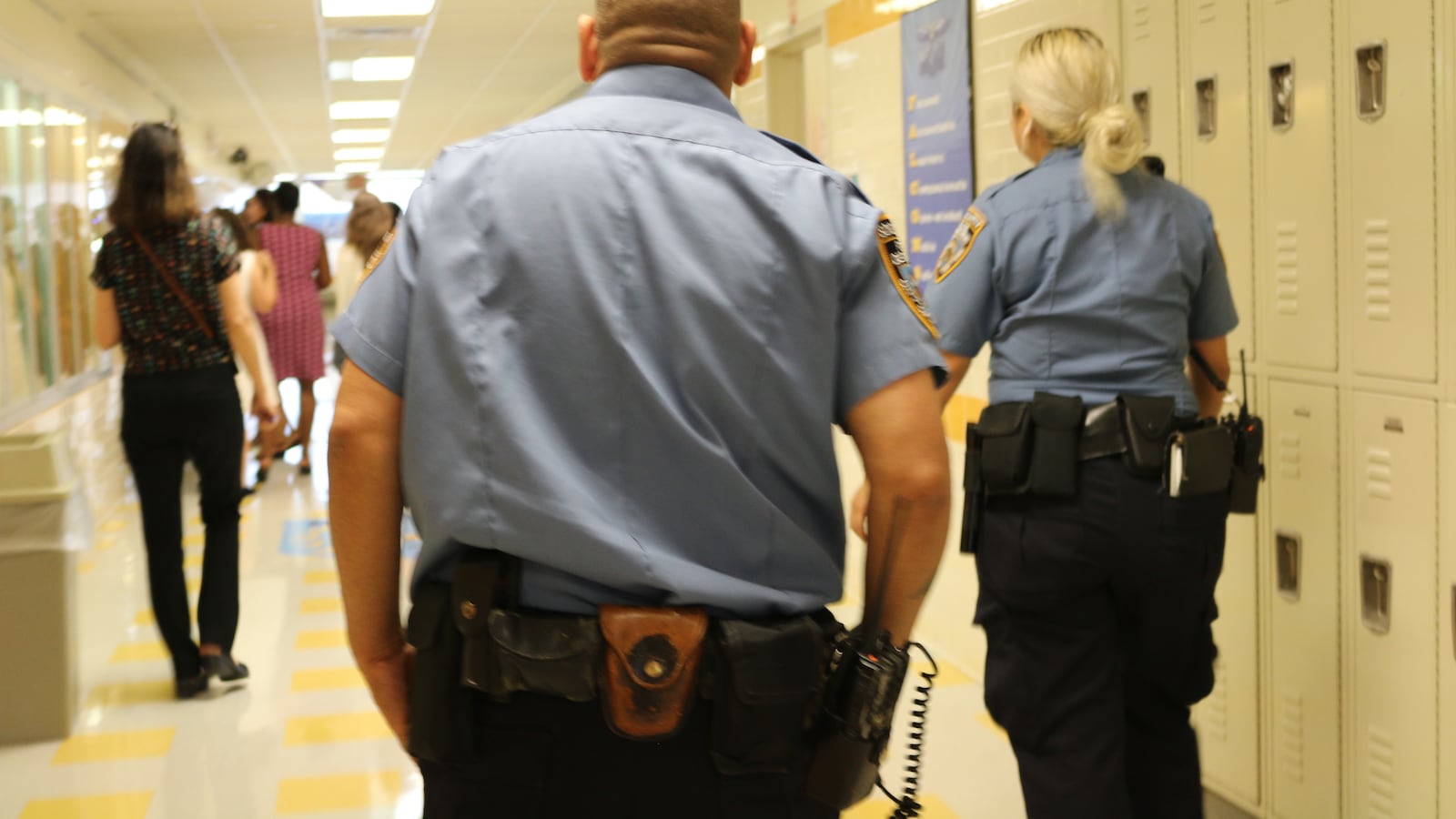Almost a year and a half after city officials said they were finalizing an overhaul to the way New York City safety agents operate in schools, two city councilors are raising questions about why a new agreement is not yet in place.
“We have serious concerns about the delay,” Mark Treyger and Donovan Richards wrote in a letter to the schools chancellor and police commissioner.
The agreement, known as a “memorandum of understanding,” governs police involvement in school security and formally handed the police department authority over thousands of safety agents stationed in schools. But it has not been updated since 1998, when Rudy Giuliani was mayor and zero-tolerance dominated the city’s approach to policing. It was supposed to be updated every four years, but has never been revised.
Advocates have long argued that the arrangement can criminalize misbehavior if police officials wind up responding to minor infractions instead of serious threats to school safety. In 2016, a mayoral task force proposed an overhaul to the agreement and negotiated a series of changes that would have limited police involvement on issues such as cutting class, smoking cigarettes, and certain instances of insubordination, participants said. The group also agreed on limits to the use of handcuffs and other restraints on students.
Those compromises largely disappeared when the city presented a new draft agreement, according to people who were present during the meetings. Now, the group has not been updated on the status of negotiations or whether a new agreement will be released.
“We came together with the city, we were in agreement on a lot of productive ways to change this stuff,” said Johanna Miller, an education policy expert at the New York Civil Liberties Union, who is on the task force. “We’ve gotten no updates and seen no formal changes to the documents in about two years.”
The lack of progress on the issue cuts against the rhetoric of schools Chancellor Richard Carranza, who has frequently suggested that reforms to school discipline are essential. Black and Hispanic students, who make up nearly 70 percent of the city’s students, account for virtually all of those who are arrested or handcuffed, an issue student activists have repeatedly highlighted.
Mayor Bill de Blasio has worked to overhaul school discipline policies, which have reduced suspensions and arrests. But some advocates say he has not prioritized reforming the role of police in schools and has allowed the NYPD to throw up roadblocks to changing the system.
“We were finally dealing with this holistically, and frankly the mayor has not created the imperative to get these agencies to collaborate on this issue,” Miller said.
Treyger, the chairman of City Council’s education committee, suggested the NYPD has jammed up the process. “My understanding the holdup has been that the NYPD has been very determined to hold onto power in our schools,” he said, adding that a final version of the agreement should allow school principals to have an explicit role in evaluating the safety agents in their buildings.
More recently, police officials have told advocates that they’re open to tweaking a separate patrol guide, but were less interested in an overhaul of the memorandum, which would would allow for a more holistic approach that includes school personnel, Miller said.
Police Sergeant Jessica McRorie wrote in an email that the NYPD is finalizing the memorandum with the education department, though she did not respond to questions about whether they had been resistant to a new agreement.
In October 2017, an education department spokeswoman also said the agreement was being finalized. Now, the police and education departments declined to offer a new timeline or explain what is causing the delay, though Treyger said he had been told it is coming in “a matter of weeks.” A spokeswoman for de Blasio declined to comment.
“We’re committed to providing safe and supportive environments for our students, which is why we’re working closely with NYPD to get this right,” education department spokeswoman Miranda Barbot wrote in a statement. “The Chancellor has been involved in this discussion, and we will share the final version as soon it is ready.”

